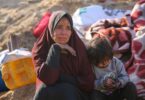Dmitry Gorokhov, Vitaly Makarchev
West Africa’s key country, the Republic of Mali, is aggressively seeking new approaches to tackling the daunting social, economic and defense challenges that the country has faced over the past two decades. The current leadership of the republic , where military personnel with combat experience occupy key positions, are especially concerned about the terrorist threat, which has intensified many times since the collapse of Libya’s statehood in 2011. With the fall of the Gaddafi regime, a wide stream of weapons and extremists poured into the country from the northeast, as the most important transport corridors connecting northern and western Africa pass through Mali.
Looking for a new partnership
The geopolitical situation in the Sahel region, according to the Malian authorities, has significantly deteriorated in recent months after France’s unexpected decision for African countries to reformat its presence in this part of the continent. As a result, Mali is now looking for new and reliable international partners who can help the country to strengthen its national armed forces, teach new strategies and tactics to combat terrorism. The government of the African country does not hide the fact that it wants to expand cooperation with Russia in the military field.
“Russia is a reliable and serious partner,” said Colonel Sadio Camara, Minister of Defense for Veterans of Mali last week, receiving four Mi-171 military helicopters purchased from the Russian Federation in the capital of Bamako. Mali has always had a very fruitful partnership. ” The head of the Ministry of Defense stressed: “The extraordinary speed of fulfilling the contract for the supply of helicopters demonstrates the reliability and seriousness of Russia as a partner with whom we always and with great pleasure cooperate in the interests of both countries.”
Among the possible new forms of interaction between the two countries, the Mali leadership is considering the option of attracting Russian military specialists on a commercial basis. According to the Malian news portal aBamako, Bamako is closely following developments in the Central African Republic (CAR), where contract Russian military instructors have helped government forces launch powerful strikes against insurgent groups since December. As a result, the latter were forced to leave the CAR cities and strategic settlements, leaving for the countryside, where they continue to be pursued by army units. The actions of the CAR armed forces, which are supported by their international allies, including those from Russia, are viewed in numerous African countries as an undoubted success and an example of effective action.
Alternative option
Speaking at the UN General Assembly on September 25, Mali’s Prime Minister Shogel Kokalla Maiga said that “France has left Mali to fend for itself in the middle of the road.” He stressed that in the current emergency conditions, the country is forced to look for new international and reliable partners. “In this situation, we need to have an alternative plan,” Maiga stressed. “Not a single option is ruled out. When the appropriate decision is made, everyone will learn about it from the official announcement of the Mali government.”
Reuters reported in mid-September that, according to the information it received, the Mali authorities are considering the possibility of concluding an agreement with a private Russian company for the arrival of up to 1,000 military instructors in the country. A few days later, the French Foreign Ministry and the German Defense Ministry announced that the possible cooperation of the Mali government with Russian private military companies would call into question the presence of military contingents of these countries in Mali.
In turn, the Mali Foreign Ministry stressed in a special statement that the country “has the full sovereign right to independently choose its international partners to solve the problems it faces, including in the security sphere. The Mali government will not allow other states to decide which partners the country should interact with. , and with which not “.
In doing so, the authorities rely on public opinion. Thus, a survey of Bamako residents conducted from September 30 to October 3 by the national service GISSE showed that 78.58% support closer military ties with Russia and the arrival of Russian military instructors in Mali. 7.6% of respondents were against. At the same time, 89.6% of the capital’s residents have a positive attitude towards Russia, 7.1% of the population of Bamako have sympathy towards France. However, criticism of the current leadership of Mali from Paris continues. French President Emmanuel Macron recently questioned the legitimacy of the Mali government, saying that it is not genuine, “since it was created as a result of two coups d’état.”
Two coups in two years
Mali faced a severe internal political crisis in the early summer of 2020. Created by the influential Imam Mahmoud Diko, the June 5 Movement – The Alliance of Patriotic Forces (M5-RFP) held a series of powerful demonstrations in the center of Bamako in June and July against the policies of then President Ibrahim Boubacar Keita in the social, economic and security areas, demanding him immediate resignation. The police brutally dispersed the protests, in which mainly young people participated, there were victims. At the same time, rallies of the movement took place on the streets of Malian cities, demanding the withdrawal of France as a former colonial power from all important spheres of Mali’s life.
In the wake of growing discontent with the authorities, on August 18, 2020, a military coup took place in the country. A group of officers led by Colonel Assimi Goita seized power, suspended the constitution, arrested President Keita and Prime Minister Buba Cisse and placed them at an army base. A day later, President Keita announced his resignation and the dissolution of the government.
On September 21, the military appointed a retired general and former defense minister, Ba Ndao, as the new interim president of Mali, and former foreign minister Moktar Ouane as prime minister. Goita became the vice president of Mali, in charge of the power unit. However, on May 24 this year, the president and prime minister were detained and removed from their posts by the same group of military men. Goita announced that he had stripped them of their powers a few hours after they appointed a new government, without agreeing with him on the composition of the power block. In turn, the Malian news portal aBamako reported that the military was also displeased by the policy of Ba Ndao, which involved the conclusion of contracts for the purchase of weapons mainly from French companies, which ignored lucrative deals with manufacturers from other countries. Vice President Assimi Goita was declared the head of state for a transitional period by the Constitutional Court of Mali. The official inauguration of Goita took place on June 7. On the same day, he appointed one of the leaders of the M5-RFP movement, Shogel Kokalla Maigu, to the post of prime minister of the transitional government of Mali.
The question of elections
Immediately after the August coup in Mali, an influential regional organization, the Economic Community of West Africa (ECOWAS), took the initiative to return the country to civilian rule. After a series of consultations with the military authorities, a compromise was reached, according to which in 18 months – in February 2022 – presidential and parliamentary elections should be held in Mali, as well as all institutions of civilian power should be restored. In exchange, ECOWAS abandoned its sanctions policy against Mali.
Following the May coup, Mali’s military authorities confirmed the holding of presidential and general elections in February 2022. However, in recent months there have been signs that the current geopolitical difficulties threaten to slow down the transition. So, Shogel Kokalla Maiga recently announced that the presidential and parliamentary elections in Mali could be postponed for several weeks or months. “The main thing for us is not so much the date of the elections as the task of holding them so that no one disputes the course and results of the voting,” the prime minister said. He said that the issue of the timing of the elections will be decided by the National Assembly in the coming October. Several social movements and trade union organizations in Mali have demanded that the transition period be extended for another three years. In their opinion, it is this period that is necessary for the complete stabilization of the situation in the country.
The leaders of the 13 states united by ECOWAS, at the summit on September 16, demanded that the current leadership of Mali provide, no later than October 2021, a schedule of events that should end with presidential and parliamentary elections no later than February 27, 2022. Otherwise, ECOWAS threatened to impose personal sanctions against persons who delay the transition process in this country.
The fight against terrorism
Over the past decade, the threat posed by international terrorism has grown for Mali and the entire region. Islamist terrorist groups operating practically throughout the country, including the Islamic State in West Africa (ISWAP) and the Islamic State in the Greater Sahara (ISGS), which are structures of the Islamic State (IS, banned in the Russian Federation), have increased the number of attacks to military and civilian targets, killing and kidnapping military and civilians.
A UN Security Council resolution in the spring of 2013 established the UN Multidimensional Integrated Stabilization Mission in Mali (MINUSMA). Its mission is to assist the Malian authorities in strengthening security throughout the country. Today MINUSMA has 15 thousand servicemen.
In August 2014, France launched Operation Barkhan to combat Islamist groups in five countries of the Sahelo-Saharan region (Mali, Burkina Faso, Mauritania, Niger and Chad). Barkhan was a continuation of Operation Serval, which the French military carried out in 2013-2014 in Mali. According to law enforcement agencies, a total of about 4.5 thousand people are involved in the operation. However, Paris has now decided to change the format of Operation Barkhan, which will lead to the withdrawal of French troops from the northern regions of Mali.
The current actions of France have called into question the future of Task Force Takuba, the deployment of which began a year ago in the key region of the central Sahel – Liptaco. The Takuba Group was established in March 2020 by a joint decision of the governments of France, Germany, Great Britain, the Netherlands, Belgium, Czech Republic, Denmark, Estonia, Sweden, Norway, Portugal.
Closing bases
By the end of this year, France will begin closing its bases in Mali. On a military operation in this country, which lasts eight years (the same as the war in Algeria lasted), she spends annually about a billion euros.
French President Emmanuel Macron announced the regrouping of French forces at his July talks with the leaders of the Sahel five countries – Mali, Burkina Faso, Mauritania, Niger and Chad. The number of the contingent (5,100 troops) will be reduced by 50%. As the president stressed, the fight against Islamist groups in the Sahel is not only a task for African countries, but participation in it obliges them to adapt to new conditions. France has done so on several occasions since the start of the Mali operation in January 2013, he noted. From now on, the military presence will pursue two goals: to continue neutralizing the two regional terrorist Islamist groups and to increase the potential of the local armed forces.
Melanchon’s Summon
Some political analysts call for the complete withdrawal of French forces from the savannah zone of Africa. The French army was supposed to prevent Islamist militants from gaining a foothold in the region of tropical sub-Saharan Africa. But military efforts failed to achieve stability. The leader of the leftist movement “Unruly France” Jean-Luc Melanchon at a press conference in Burkina Faso, neighboring Mali, noted that the presence of French troops on Malian territory should end sooner or later. He demanded consultations with the people of Mali to “quickly resolve this issue.”
The expert community recalled that France withdrew from the former Yugoslavia and Afghanistan after it lost 112 and 90 soldiers, respectively, and hundreds of its servicemen were injured. In Mali, 55 soldiers were killed. Are French politicians ready to wait until losses in the African tropics reach comparable proportions?
Supporters of the military operation believe that comparisons are hardly legitimate, since the country followed the allies to the Balkan and Afghan theaters of military operations, having no obvious interests there. After 20 years in the territory of the former Yugoslavia, the French contingent finally left it in 2013 with the withdrawal from Kosovo. The withdrawal of French troops from Afghanistan took place a year earlier, in 2012, after 11 years of deployment in the country and also had no operational significance.
Unresolved tasks
Experts associate further assistance to Mali with the advancement of realistic tasks. “Fighting terrorism is necessary, but what next?” – said the anthropologist Jean-Pierre Dozon. Reconstructing a country is not easy. The level of violence in Mali is unprecedented. The restoration of territorial integrity presupposes, among other things, a solution to the issue of the Tuaregs, whose separatism provoked the crisis.
In Paris, reminiscent of historical ties. Mali gained independence in 1960 after 77 years of French colonization. “Africa is not our backyard, even if we have history, interests, partners there,” stressed Nicolas Sarkozy, who tried to build pragmatic relations with Africa during his presidency in 2007-2012. The Malian diaspora in France, numbering about 80 thousand people, has a certain influence on the politics of Paris. Business ties, meanwhile, are limited. In the past decade, the West African country ranked only 165th among France’s partners. Thus, uranium mining in Niger is of key importance for French nuclear power plants. But directly in Mali’s economy, especially in infrastructure, China’s influence is much stronger today.
Parley’s reaction
French analysts noted that since the Russia-Africa summit in October 2019, sub-Saharan countries have entered into a series of bilateral agreements with Moscow. Having visited Bamako last month, French Armed Forces Minister Florence Parley spoke out against the involvement of a Russian PMC in ensuring the security of Mali. “We want the return of the Malian state, not the arrival of Russian mercenaries,” she wrote on Twitter.
The reaction of Mali Prime Minister Shogel Kokalla Maigi followed at the session of the UN General Assembly. The end of the French operation “Barkhan”, he noted, “presents Mali with a fait accompli.” In Bamako, therefore, they intend to “look for ways to more effectively ensure autonomous security with other partners.” The Elysee Palace, in turn, called Bamako’s statement that Paris had abandoned Mali to its fate as shameful. At the closing ceremony for the Africa 2020 season, Macron said that the premier’s statement “does not honor a government that is not even one, since it was created as a result of two coups d’état.”
On the first day of October, French media reported, the Malian authorities received four helicopters from Russia. As French experts admit, the turn towards the Russian Federation is caused by a real need for the security of the countries of the region, which are not particularly satisfied with what the United States and its Western allies are proposing.
Mali in numbers
Mali is one of the poorest countries in the world, ranking 119th in the world in terms of GDP. The average monthly income of a Malian is $ 4.1 per day in terms of US currency. At the same time, half of the country’s population lives below the poverty line established by the World Bank – with an income of less than $ 1.25 per day. According to UN estimates, Mali is the 12th poorest country in Africa out of 54 states on the continent.
One of Mali’s main economic problems is that imports exceed exports in value. For decades, the country has been unable to overcome the negative trade balance. So, in 2018, Mali exported goods and services for $ 2.86 billion, and imported them for $ 3.6 billion. The first place in Mali’s exports is gold, the country annually sells it on world markets for $ 2.5 billion. The population of Mali , according to the latest UN estimates, reaches 21 million, the average age of the country’s inhabitants is 16.3 years. Muslims make up 90% of the population of the republic.
Courtesy: (TASS)






